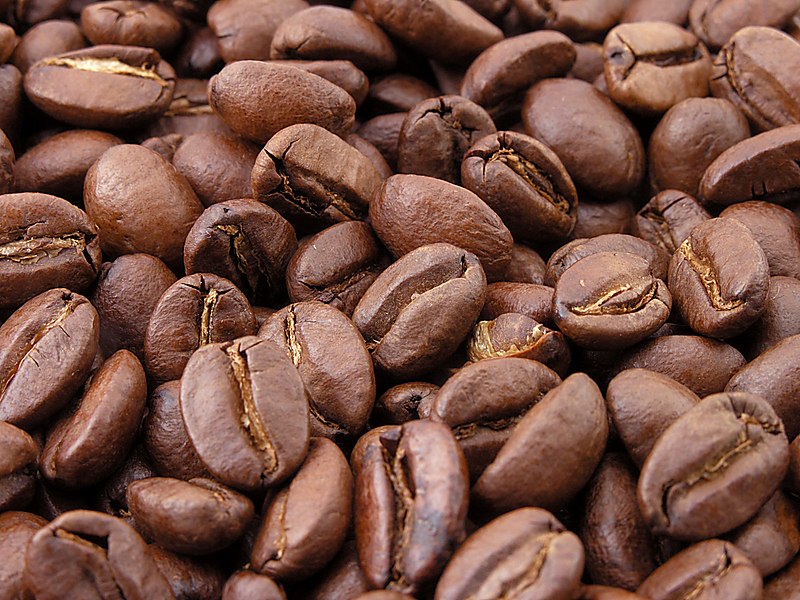Coffee is a popular beverage made from roasted coffee beans, which are the seeds of the Coffea plant. The coffee plant is native to tropical regions of Africa and has been cultivated for its beans for centuries.
Coffee beans are typically roasted, ground, and then brewed with hot water to make the beverage we know as coffee. There are many different types of coffee, which can vary in flavor, aroma, and strength depending on factors such as the type of coffee bean, the roasting process, and the brewing method.
Coffee is a natural source of caffeine, a stimulant that can help improve mental alertness and reduce fatigue. It also contains antioxidants and other beneficial compounds that may have health benefits. However, excessive consumption of caffeine can have negative effects on health, and it’s important to moderate your intake and be aware of any potential health risks associated with caffeine consumption.
What exactly is caffeine?
Caffeine is a natural stimulant that belongs to a group of compounds called xanthines. It is found in varying quantities in the seeds, leaves, and fruits of some plants, including coffee beans, tea leaves, and cocoa beans.
Caffeine works by blocking the action of a neurotransmitter called adenosine, which promotes relaxation and drowsiness. By blocking adenosine, caffeine can increase alertness, reduce fatigue, and improve cognitive performance.
In addition to its stimulant effects, caffeine has other effects on the body. It can increase heart rate and blood pressure, stimulate the central nervous system, and increase the production of urine. These effects can have both positive and negative impacts on health, depending on factors such as individual sensitivity to caffeine, the amount consumed, and the timing of consumption.
While moderate caffeine consumption is generally considered safe for most healthy adults, excessive consumption can lead to negative health effects such as insomnia, anxiety, heart palpitations, and digestive problems. It’s important to be aware of your caffeine intake and to consume it in moderation.
How does coffee effect the human body?
Coffee affects the human body in several ways. Here are some of the most notable effects:
Stimulates the Central Nervous System: Coffee contains caffeine, a natural stimulant that can increase alertness, concentration, and cognitive performance. Caffeine works by blocking the action of a neurotransmitter called adenosine, which promotes relaxation and drowsiness.
Increases Metabolic Rate: Coffee can increase metabolic rate, which may help to burn calories and promote weight loss.
Improves Physical Performance: Caffeine can also improve physical performance by reducing the perception of effort and fatigue, which may allow you to exercise for longer.
Raises Blood Pressure: Coffee can raise blood pressure temporarily, which may be a concern for people with high blood pressure or heart disease.
Can Cause Insomnia: Consuming coffee late in the day or in large quantities can interfere with sleep and cause insomnia.
May Increase Anxiety and Jitters: For some people, coffee can increase feelings of anxiety or nervousness, as well as cause jitters or shakiness.
May Cause Digestive Issues: Coffee can stimulate the production of stomach acid, which may cause digestive issues such as heartburn, stomach upset, or diarrhea in some people.
Overall, the effects of coffee on the body can vary depending on individual factors such as age, gender, health status, and sensitivity to caffeine. While moderate coffee consumption is generally considered safe for most healthy adults, excessive consumption can lead to negative health effects. It’s important to be aware of your coffee intake and consume it in moderation.
What countries produce the best coffee?
There are many countries that produce high-quality coffee beans, each with their own unique flavor profiles and growing conditions. Here are some of the most notable coffee-producing countries:
Brazil: Brazil is the world’s largest coffee producer and is known for producing a wide range of coffee types, including the popular “Brazilian Santos” coffee. Brazilian coffee beans are generally low in acidity and have a mild, nutty flavor.
Colombia: Colombia is known for producing high-quality Arabica coffee beans with a well-balanced flavor profile that includes notes of caramel, chocolate, and fruit. Colombian coffee is typically medium-bodied and has a bright acidity.
Ethiopia: Ethiopia is considered to be the birthplace of coffee and produces some of the most complex and flavorful coffee beans in the world. Ethiopian coffee beans are known for their fruity, floral, and spicy notes, and are often described as having a “winey” flavor.
Costa Rica: Costa Rica is known for producing high-quality Arabica coffee beans with a clean, bright flavor profile and a medium body. Costa Rican coffee is often described as having notes of citrus, chocolate, and caramel.
Jamaica: Jamaica is known for producing some of the world’s most expensive and sought-after coffee beans, including the famous Blue Mountain coffee. Jamaican coffee beans are known for their mild, sweet flavor and low acidity.
Other notable coffee-producing countries include Guatemala, Honduras, Mexico, Kenya, and Indonesia. Keep in mind that the flavor of coffee can vary greatly depending on the specific region, altitude, and growing conditions, so it’s always worth trying different types of coffee from different countries to find your favorites.
What is the best way to make a coffee?
The best way to make coffee depends on personal preference, as well as factors such as the type of coffee beans, the roast level, and the brewing method. Here are some general tips to help you make a great cup of coffee:
Choose high-quality coffee beans: The quality of your coffee beans will have a big impact on the flavor of your coffee. Look for freshly roasted, high-quality beans that have been stored properly to ensure freshness.
Grind your coffee just before brewing: For best flavor, grind your coffee beans just before you brew your coffee. Use a burr grinder to ensure an even grind and avoid overheating the beans.
Use the right amount of coffee: A good rule of thumb is to use 1 to 2 tablespoons of coffee grounds for every 6 ounces of water, although you can adjust the ratio to your taste.
Use the right temperature water: The ideal water temperature for brewing coffee is between 195 and 205 degrees Fahrenheit (90-96°C). Boiling water can scorch the coffee and produce a bitter taste.
Brew for the right amount of time: The ideal brew time will depend on your brewing method. For example, pour-over coffee typically takes 2 to 4 minutes, while French press coffee takes 4 to 6 minutes.
Experiment with different brewing methods: There are many different ways to brew coffee, including drip coffee makers, pour-over, French press, and more. Experiment with different brewing methods to find the one that produces the best flavor for you.
Remember that the best way to make coffee is the one that you enjoy the most. Don’t be afraid to experiment and try new things until you find the perfect cup of coffee for you.

